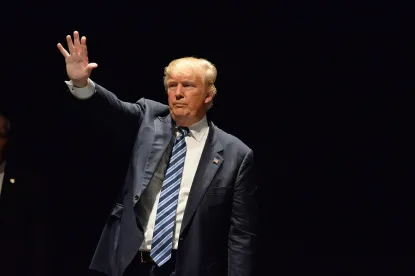President-Elect Trump will enter the White House facing a dramatic decline in global trade growth. A recent World Trade Organization (WTO) report notes that 2016 marks the slowest pace of trade and output growth since the 2008 financial crisis. WTO Director-General Roberto Azevêdo called slowing trade growth “a wake-up call,” especially given increasing anti-globalization efforts around the world. He further cautioned against translating the results of the study into “misguided policies that could make the situation much worse, not only from the perspective of trade but also for job creation and economic growth and development which are so closely linked to an open trading system.” President-Elect Trump will have to work with lawmakers – especially pro-trade Republicans – to craft U.S. trade policies that ultimately promote U.S. economic growth in the interconnected world of global trade.
Few issues have proven as contentious in the 2016 elections as trade policy. President-Elect Trump’s campaign messages criticizing existing U.S. trade policies clearly resonated with many Americans, especially within the “Rust Belt” states whose economies have been historically dependent on manufacturing. He emphasized the importance of maintaining U.S. manufacturing capacity, stating that he is not averse to renegotiating existing trade agreements like the North American Free Trade Agreement (NAFTA) and pending trade agreements like the Trans-Pacific Partnership (TPP) and the Transatlantic Trade and Investment Partnership (TTIP).
President-Elect Trump’s views of the TPP deal have thrown its long-term prospects into doubt. Meanwhile, Senator Jeff Sessions (R-AL), a close advisor to President-Elect Trump, warned soon after the election that “there will be blood all over the floor if somebody tries to move [the deal] through the Congress any time soon.” Senate Majority Leader Mitch McConnell (R-KY) reiterated after the election that he will not bring TPP to the Senate floor in the lame duck session that begins next week. Despite the slim odds, the Obama Administration nevertheless has continued to press for congressional approval of the deal and will likely seek to intensify its efforts during the lame duck session.
Continue reading by downloading our full “2016 Post-election Analysis: A New Administration and a New Congress – What to Expect” here.
Additional policy topics discussed within the analysis are:
-
Appropriations/Budget
-
Defense and National Security
-
Education Policy
-
Energy, Environment, and Natural Resources
-
Financial Services
-
Food and Agricultural Policy
-
Foreign Policy
-
Health Care Policy
-
Immigration Reform
-
Tax Policy
-
Technology and Communications
-
Transportation and Infrastructure



 />i
/>i
